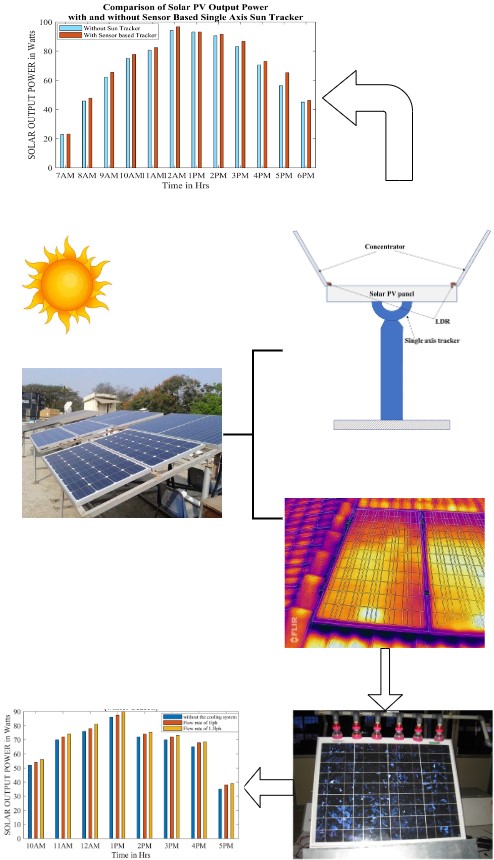
Due to its abundance and lack of pollution, solar energy will soon be the most popular source of electricity production. Numerous factors, including the temperature effect, solar irradiance effect, shadow effect, incident angle effect, dust accumulation on the solar cell, shunt resistance, types of solar cell materials, mechanical defects in the solar panel, spectral mismatch loss, cable loss, maintenance and cleaning cycle, load mismatching effect, etc., harm the efficiency of solar P.V. power generation systems. This study aims to quantify the impact of these factors and explore efficiency enhancement techniques to mitigate their effects. Among the various factors, solar irradiation and temperature significantly influence solar P.V. panel efficiency. This research investigates the effects of solar irradiation, incident angle, and temperature through simulations and experimental methods using two 100W solar panels. Efficiency enhancement techniques like sensor-based sun tracking and temperature cooling systems are incorporated with conventional solar P.V. power generation systems. The experimental results prove that the efficiency enhancement techniques improved the efficiency of solar panels by up to 12% compared to conventional solar panels.
Total file downloads: 72